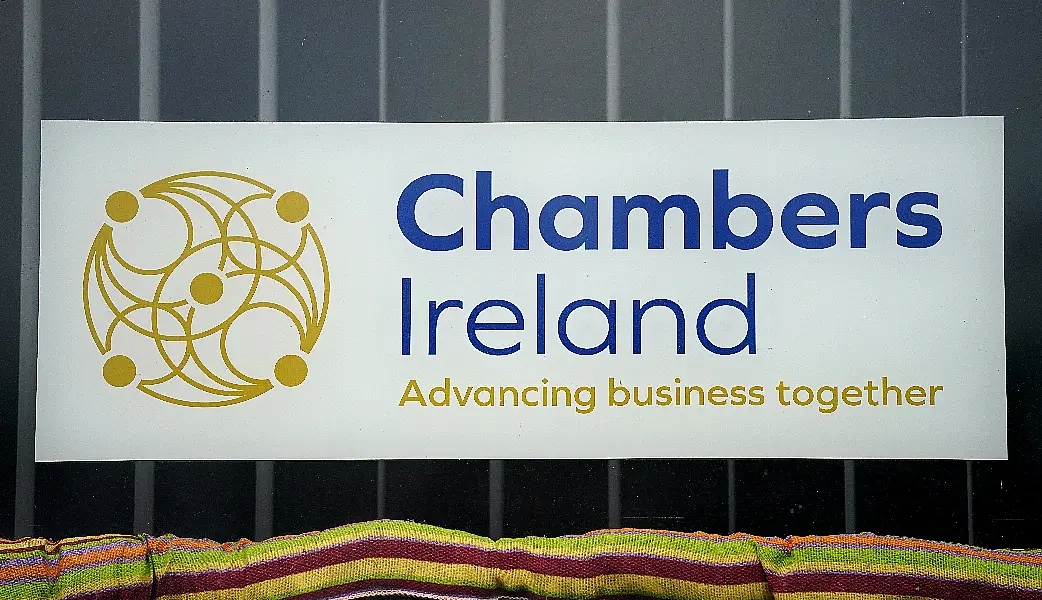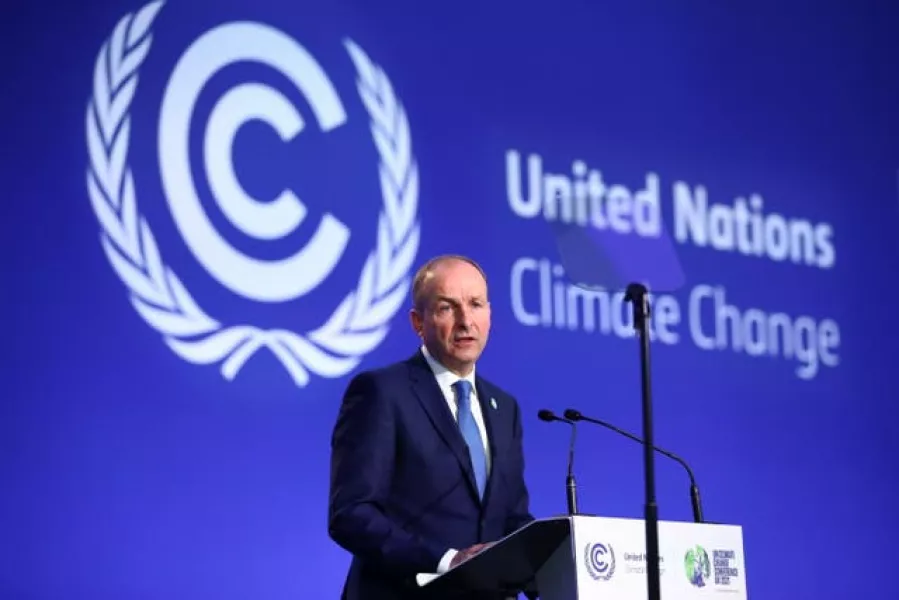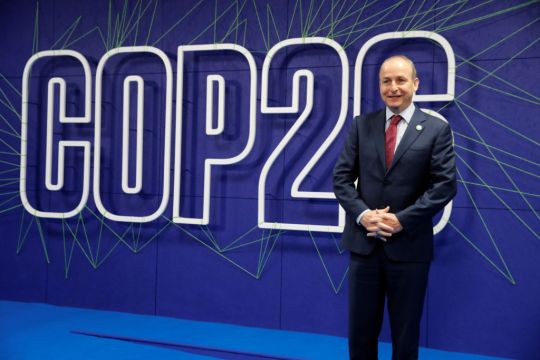Failure to introduce carbon markets, which effectively allow countries to buy and sell emissions reductions, would set back the post-pandemic recovery, the Taoiseach was warned before Cop26.
Ian Talbot, the chief executive of Chambers Ireland, wrote to Micheál Martin saying the measure could reduce the cost of Ireland’s climate commitments by half, letters released under the Freedom of Information Act reveal.
He said that if a common rulebook on such markets was not agreed, it risked “triggering damaging climate-related trade frictions which could place a significant drag on any post-pandemic recovery”.

The provision, under Article 6 of the Paris Agreement, had been a sticking point in negotiations for six years until it was signed off on at the climate conference in Glasgow in November.
Mr Talbot said failure to introduce the measure would have driven up costs, particularly for small businesses, though others argue that the availability of cheap offsets could disincentivise emissions reductions.
In a letter on October 14th, Mr Talbot wrote: “We note with great concern that current domestic climate policies are insufficient to limit global temperature increases to 1.5 degrees Celsius by 2050.
“In this context, we believe that cooperative approaches – in particular, international carbon markets – are urgently needed to rapidly accelerate the pace of decarbonization of the global economy.
“We also see a cast-iron economic case for ensuring that the Paris Agreement can enable the creation of effective international carbon markets.
“As you may be aware, recent independent research has shown that implementation of Article 6 has the potential to reduce the total cost of implementing national climate commitments by more than half – a total of €216 billion per year in 2030.
“Given the fiscal toll of the coronavirus pandemic, we believe that this is too significant a dividend for any government to leave on the table in Glasgow next month.
“By contrast, a further failure to agree on a robust set of rules to implement Article 6 risks driving up the costs of climate action in the years to come.”

He added: “Many businesses in our network already report that the fragmented nature of existing domestic carbon pricing regimes poses increasing operational challenges and risks – particularly smaller businesses with limited administrative or technical capacities.
“While we recognise that Article 6 itself is not designed to lead to a global carbon price, we believe – with the right operating rules – that it has the potential to create the necessary transparency to forge a more cohesive multilateral approach to carbon pricing.
“From a real economy perspective, this is clearly vital to avoid the unintended consequences of unilateral climate policy measures — which increasingly risk triggering damaging climate-related trade frictions which could place a significant drag on any post pandemic recovery.”
Mr Talbot, chief executive of both Chambers Ireland and the International Chamber of Commerce Ireland, said was writing on “behalf of the global business community”.
Carbon markets have been a contentious issue in the fight against climate change.
Celia Nyssens, policy officer for agriculture at the European Environment Bureau, argues that they “rely on polluters purchasing carbon offsets”.
“The availability of cheap offsets would however disincentivise prior emissions reductions” she adds.
“Even if these issues are properly addressed by the commission’s framework for the certification of carbon removals, it remains questionable whether polluters should be allowed to buy the right to claim ‘climate neutrality’.
“This could send confusing signals to consumers, slowing the shift to more sustainable lifestyles.”
The Bellona Foundation, an international not-for-profit organisation that seeks to identify climate solutions, says the success of such markets depends on the rules governing them.
“If done well, it may serve to optimise the mitigation of climate change by channelling much-needed financial resources to projects and countries where it can be applied most efficiently” they state.
“If done badly, it would amount to little more than climate negligence.”







